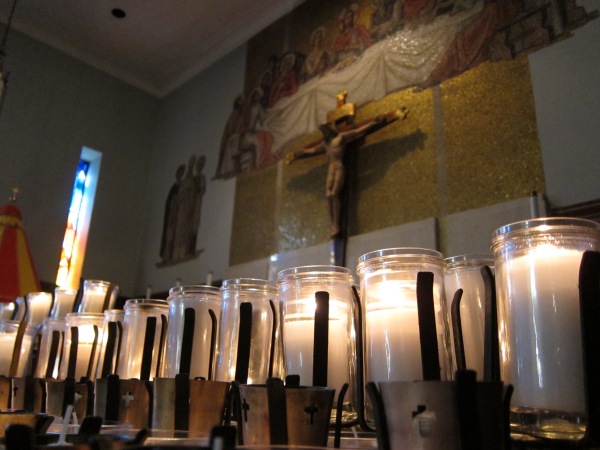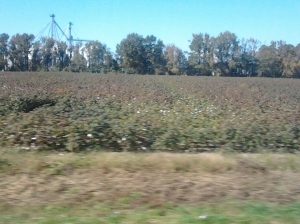Michelle Obama was speaking at the Convention about how adults within the community influence the young people and look after them, even when the adults in question are not their parents. The point was the important role that all members play in shaping the lives of the growing generation…. And then my phone rang.
I did not hear the end of the speech. But I heard the voice of our church secretary passing on the news to me that one of the members of our church, I’ll call her Antonia, had died about an hour previously. It is not news that most people want to hear. It was not unexpected. Our pastor had told me the Sunday before that the time looked more like numerous hours than days. Antonia had beaten cancer before. I remember when she gracefully stood before our congregation to tell us all how much she sincerely loved each and every one of us, and how she now had stage four cancer and was not expected to live more than two years. It tugged on me. I knew that she had loved the life she had lived, and was continuing to do so. I hated the news. I loved seeing her children move closer to be with her and the joy on her face as her grandchildren became involved in activities at church. But as a hospice chaplain, I knew it was unrealistic to expect a single soul to face cancer and win twice. I think she knew I saw the same writing on the wall that she did. But we never talked about it. Instead we carried on our relationship as it always had been only with more hugs and words and glances of affection.
I was not her pastor or her chaplain. I, however, was also not just another member of the congregation either. I grew up in this particular congregation. I had known Antonia probably since I was six months old–my entire life as far as I am concerned. Antonia, you see, had been one of those adults who makes a profound affect on the growing generation. She had been a teacher, I am sure she affected the lives of many youth. But this about she and I. She defended my mother’s right to be a single mother, in the days when that was not quite the trend it is now. She was one of my first Sunday school teachers. She was one of the “proper and successful” adults to remark on my maturity and confidence as I grew through adolescence. She and her husband danced at my wedding. As a young adult trying to establish a life she made it known to me, very intentionally, that I was never alone, that she was there. And somewhere in between there was that day she called me….it went something like this:
Me: Hello?
She: Hi Kelli. I was meeting with the Trustees. We are trying to fill the church leadership positions for the next year. And well, we decided that since you are already teaching the Sunday School that you could take on the role of Christian Education Director.
Me: What does that mean, what do I have to do?
She: Don’t worry you’ll be great. Thanks! (end of conversation).
I should probably also say that Antonia’s skill as a successful member of the nominating committee pretty much went down in the history books after this stunt. She was just not a woman I would say no to, about anything–and she never exploited that, so I always simply trusted her.
Little did I know, when I hung up the phone that day that Antonia had set my life on a path that would change me and my path forever. I ended up being the Director of Christian Education for two or three years, and only left it for a required internship with another congregation (whom I also loved). But, it was during my time as Christian Education Director that I came to realize that six of the ten children in my Sunday School class had siblings or parents with disabilities and that this affected all of them–and that somehow I was called to address this. It was during my time running the Sunday School I came to learn that I loved teaching and wanted to teach in the church in some capacity for the rest of my life. It was in the time after Antonia called to tell me that I was not only needed but was GOING TO do THIS work, that I finally embraced the call to seminary and ministry. Yes, there have been several literal phone calls that have vaulted me into new forms of ministry, but this was one of the firmest and the one to which there was only one answer.
I am not the pastor of the church that Antonia and I shared for thirty-five years, but I am a chaplain in part ordained by this congregation to the work I do. And I must admit its been hard to know my place, in this situation, at all times these last several months. Wanting to run to her, as the youth I have always been in relation to her and to tell her how much she has influenced me. Wanting to embrace her with all the love I could, and the skill surrounding end of life care I have acquired, and simply not knowing what role to play. In the end I was simply a member of her church congregation, and perhaps that is as it should be. But knowing how Antonia had embraced me with her genuine love and simple concern throughout my life, it was nearly heart-rending to know it was not my place to get into the car and drive to her home and sit with her family the night she died. Dinner had already been provided by the congregation and the pastor was there; and as a chaplain I know that more people often create more chaos in the hours just after death, I did not feel it was my place to impose that night.
I had already planned to be out-of-town the day that was scheduled for Antonia’s memorial service, so I did not get to share the impact she had on my life with her family at that time. I was in a grove of grand Sequoia trees at the time of her memorial. Minutes after I expected her service was over I felt the undeniable feeling of her hug surrounding me and I knew I had made the right choice in not changing my plans–that I needed to be surrounded by trees that were growing when Jesus walked the earth to continue my path of ministry. She knew this and knew right where I’d be.
The greatest saints who call and nominate the members of the church to ministry never really leave us. I think in even in death part of them remains with the church and the clergy they have called, whether as cheer leaders, challengers, or simply out of pity and remorse I can not yet say. I have decided that I may still have to thank Antonia for that call so long ago. That I may still need to express the many effects it had. But for now, I think I’ll continue to wait. I think I’ll just have to thank her when I know how it all works out …just to be sure …she didn’t have the wrong number after all.






